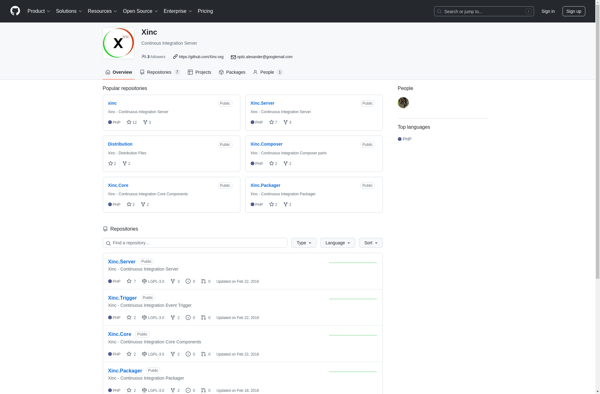Taskcluster
Taskcluster is an open source platform for building, testing, and deploying software projects at scale. It provides infrastructure automation and self-service for running tasks on a variety of systems.
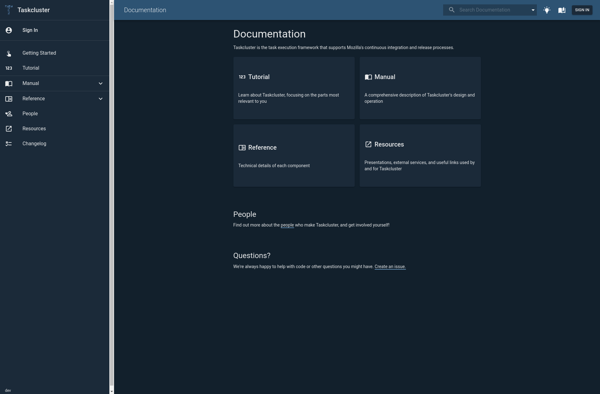
Taskcluster: Open Source Platform for Large-Scale Software Projects
Taskcluster is an open source platform for building, testing, and deploying software projects at scale. It provides infrastructure automation and self-service for running tasks on a variety of systems.
What is Taskcluster?
Taskcluster is an open source platform optimized for automating software testing and deployment processes. It enables developers to run tasks at scale across a variety of environments including physical, virtual, and containerized infrastructure.
Key features of Taskcluster include:
- Flexible task definition using YAML for specifying dependencies, deadlines, artifacts, routes, scopes and more
- Scalable task execution for running hundreds of thousands of tasks per day across multiple operating systems
- Integrations with popular CI systems like GitHub, Mozilla Firefox and others for automating testing and shipping workflows
- APIs and tools for allowing tasks to react to other tasks, pulse messages or custom triggers
- Robust access control mechanism built on top of AWS STS and a well-defined scopes model
- Real-time logs, task inspection, interactive debugging and built-in throttling capabilities
- Self-service model allowing anyone to submit tasks without manual intervention
Companies like Mozilla, CloudOps, Packet and others use Taskcluster to eliminate manual steps in their release processes and improve velocity of software development and testing.
Taskcluster Features
Features
- Distributed task execution
- Flexible task specification
- Built-in support for common workflows
- Automatic scaling
- Task dependency management
- Artifact storage
- Task inspection and auditing
- Access control and authentication
- APIs for integration
- Web UI for monitoring
Pricing
- Open Source
Pros
Open source and free to use
Highly scalable
Integrates with common tools
Powerful APIs
Active development community
Good documentation
Cons
Complex initial setup
Steep learning curve
Limited prebuilt integrations
Not ideal for simple workloads
Official Links
Reviews & Ratings
Login to ReviewThe Best Taskcluster Alternatives
Top Development and Continuous Integration & Delivery and other similar apps like Taskcluster
Here are some alternatives to Taskcluster:
Suggest an alternative ❐Jenkins
Jenkins is an open source automation server that enables developers around the world to reliably build, test, and deploy their software. It provides continuous integration and continuous delivery capabilities out of the box with hundreds of plugins to support building, deploying, and automating any project.Jenkins can be used as a...
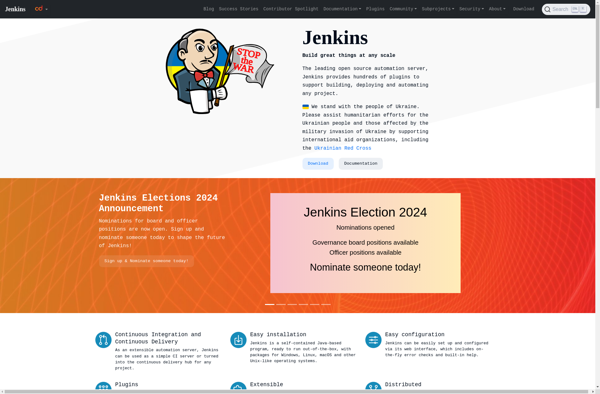
Travis CI
Travis CI is a popular continuous integration platform that is designed specifically for building and testing software projects hosted on GitHub. It provides a free plan for open source projects hosted on GitHub, making it a popular choice for developers working on open source software.Here are some key things to...
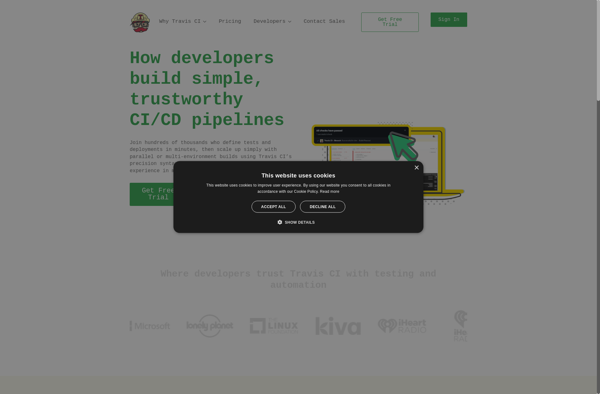
CircleCI
CircleCI is a continuous integration and delivery platform designed to help developers build, test, and deploy applications with speed and confidence. It provides cloud-based infrastructure for running automated jobs in Linux containers, allowing code to be built, tested, and delivered rapidly and reliably.Some key features of CircleCI include:Automated building, testing...
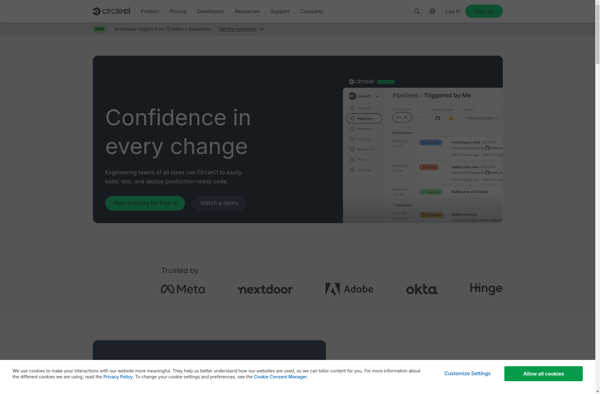
GitHub Actions
GitHub Actions is an automation platform that allows developers to automate software development workflows within GitHub. It uses YAML-based workflow files that you store in a code repository to build out tasks called actions. GitHub Actions goes beyond continuous integration and delivery by allowing you to run workflows when events...
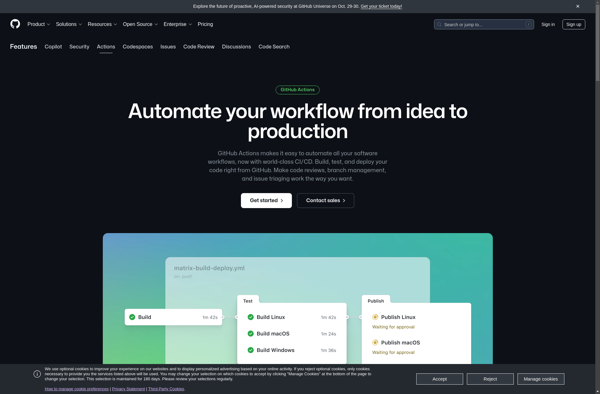
JetBrains TeamCity
JetBrains TeamCity is a continuous integration and continuous delivery server developed by JetBrains for software development teams. It automates building, testing, and deploying applications to help streamline the software development lifecycle.Some key features of TeamCity include:Customizable build configurations and build chains to automate compiling, running tests, generating reports, deploying applications,...
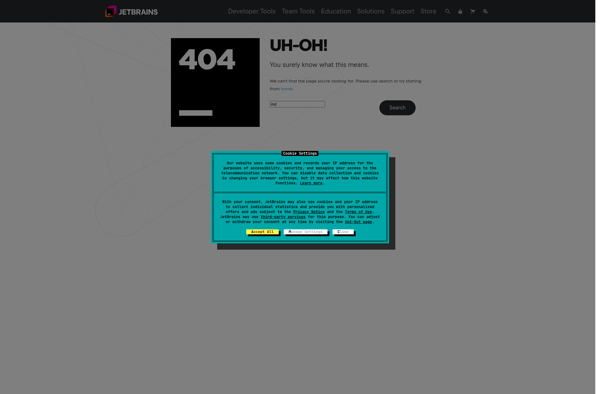
Concourse
Concourse is an open-source continuous thing platform designed for automation of pipelines in software development. It provides resources and tasks that can be combined into pipelines to automate build, test, and deployment processes.Some key features of Concourse include:Built-in resources for interacting with common infrastructure like GitHub, Amazon S3, and DockerConcept...
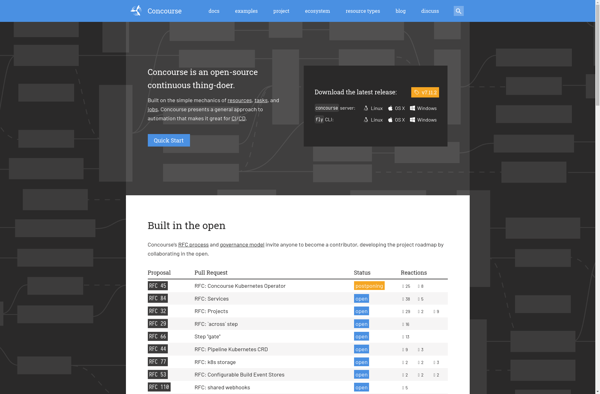
Codeship
Codeship is a cloud-based continuous integration and delivery service that helps development teams test, build and deploy their code quickly and efficiently. Some key features of Codeship include:Fully automated build, test and deployment pipelinesIntegration with GitHub, Bitbucket and GitLab for easy code hosting and managementParallel testing for faster test executionBuilt-in...
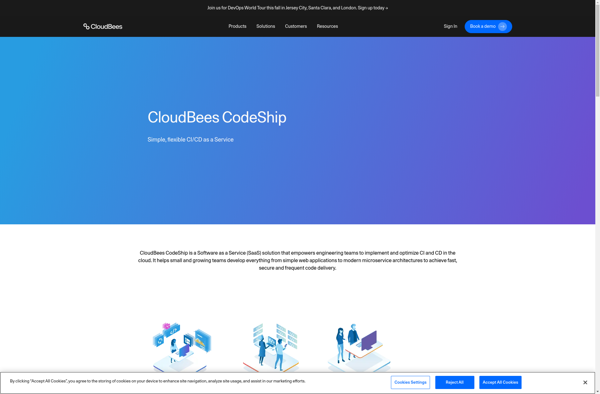
Bamboo Continuous Integration
Bamboo is a continuous integration and continuous delivery server developed by Atlassian. It allows software development teams to automate building, testing and deploying applications.Key features of Bamboo include:Automated builds and tests - Automatically run builds and tests whenever code is committed to keep the team informed of integration issues.Release management...
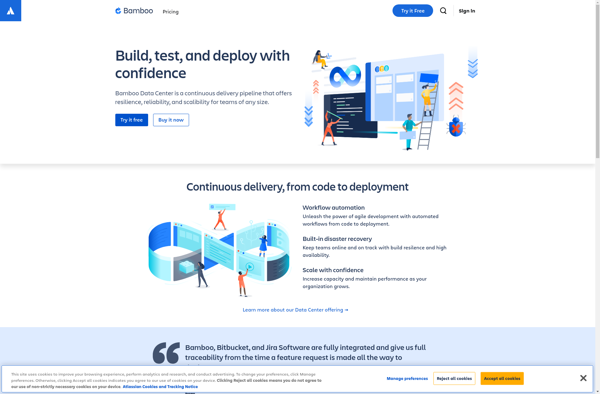
Azure DevOps
Azure DevOps is a Microsoft cloud-based collaborative development environment that supports Git repositories, Kanban boards, extensive automated builds, load testing, release management and application analytics. Key capabilities include:Version control with Git repositories for source code and integration with Visual Studio and EclipseAgile planning and tracking using Kanban boards with configurable...
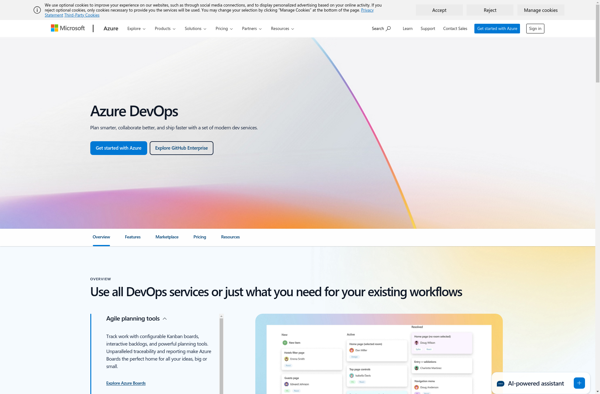
AppVeyor
AppVeyor is a cloud-based continuous integration service designed specifically for building and testing .NET applications. It integrates seamlessly with GitHub, Bitbucket and other source control providers to automatically build and test each time developers push code.Key features of AppVeyor include:Support for .NET Framework, .NET Core, Node.js, Ruby and other technologies...
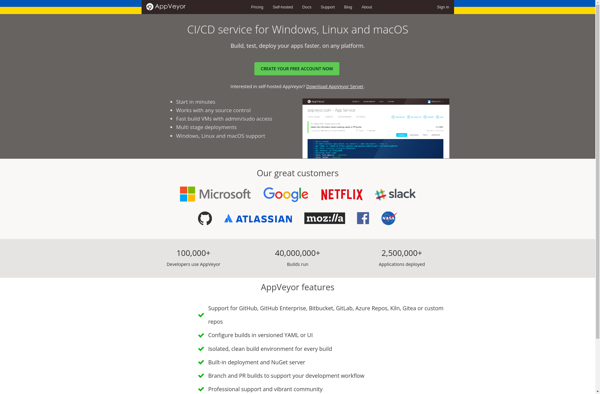
Cicada.sh
Cicada.sh is an open-source personal knowledge management and sharing platform. It enables users to capture and share knowledge using a structured, networked note-taking system, inspired by technologies like Roam Research and Obsidian.With Cicada.sh, you can organize your notes and thoughts into an interconnected network rather than a restrictive hierarchy. Notes...
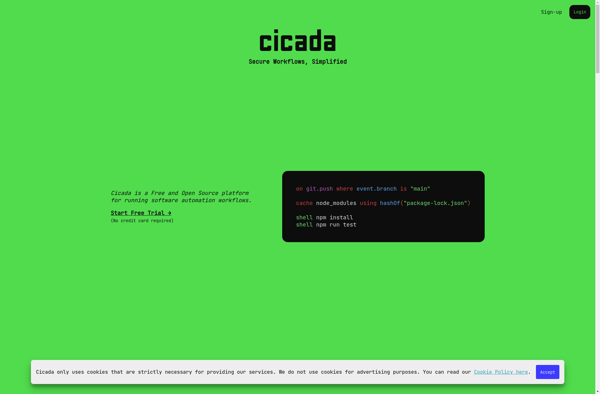
Buildbot
Buildbot is an open-source continuous integration and continuous delivery application that allows software development teams to automate the build, test, and release processes. It provides a customizable workflow engine that allows you to define your build steps, run tests, generate reports, and integrate with version control systems.Some key features of...
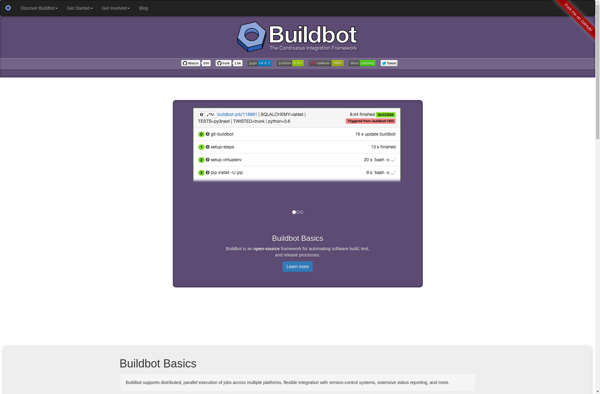
Drone.io
Drone.io is an open source continuous delivery platform built with Docker that allows developers to build, test, and deploy code easily and efficiently. Some key features and benefits of Drone.io include:Simple setup using a Docker container and YAML-based configuration pipelineSupports building and testing code written in all major languages like...
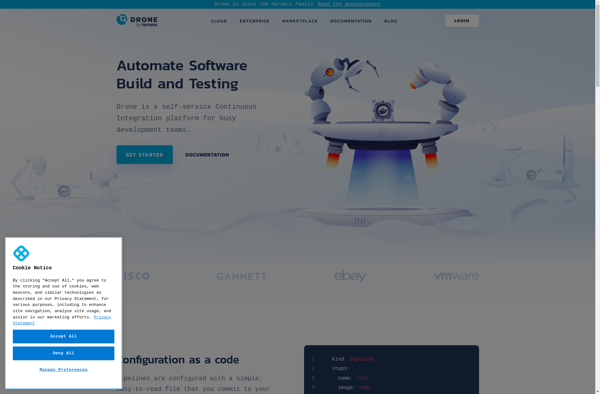
Agola
Agola is an open-source automation platform designed specifically for software development teams. It provides a simple way to set up continuous integration, deployment, and delivery pipelines without the complexity of traditional CI/CD tools.Some key capabilities and benefits of Agola include:Configuration-as-Code - Pipelines, jobs, tasks, and other components are defined in...
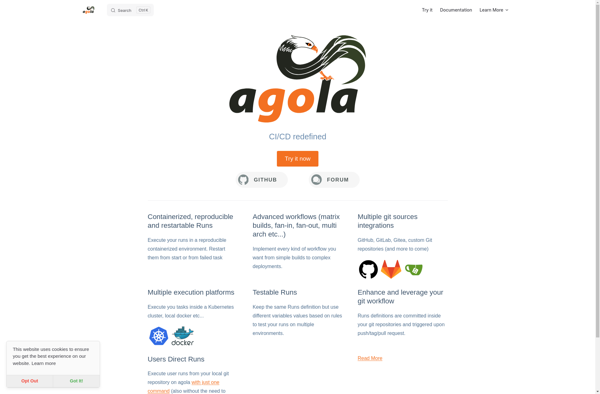
Apache Continuum
Apache Continuum is an open-source continuous integration and delivery application originally created by the Apache Software Foundation. It is designed to automate builds, testing, and deployments for Java applications.Key features of Apache Continuum include:Automatically building Java applications on a configurable schedule (e.g. nightly builds)Running unit, integration and functional testsManaging dependencies...
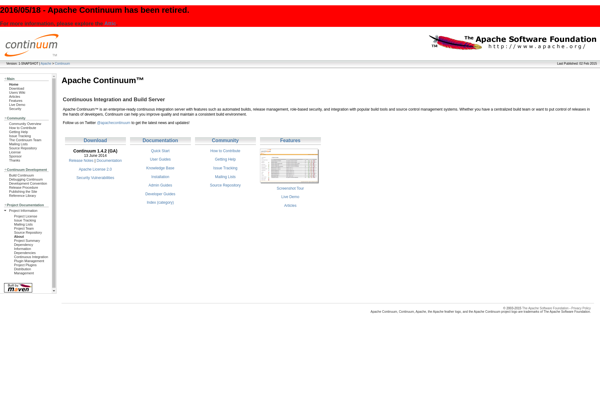
Xinc
Xinc is an open-source, decentralized chat and communications platform focused on privacy and security. It was first released in 2014 as an alternative to traditional centralized messaging apps like WhatsApp or Telegram.Some key features of Xinc include:End-to-end encryption - All communications between Xinc users are encrypted locally on their devices...
